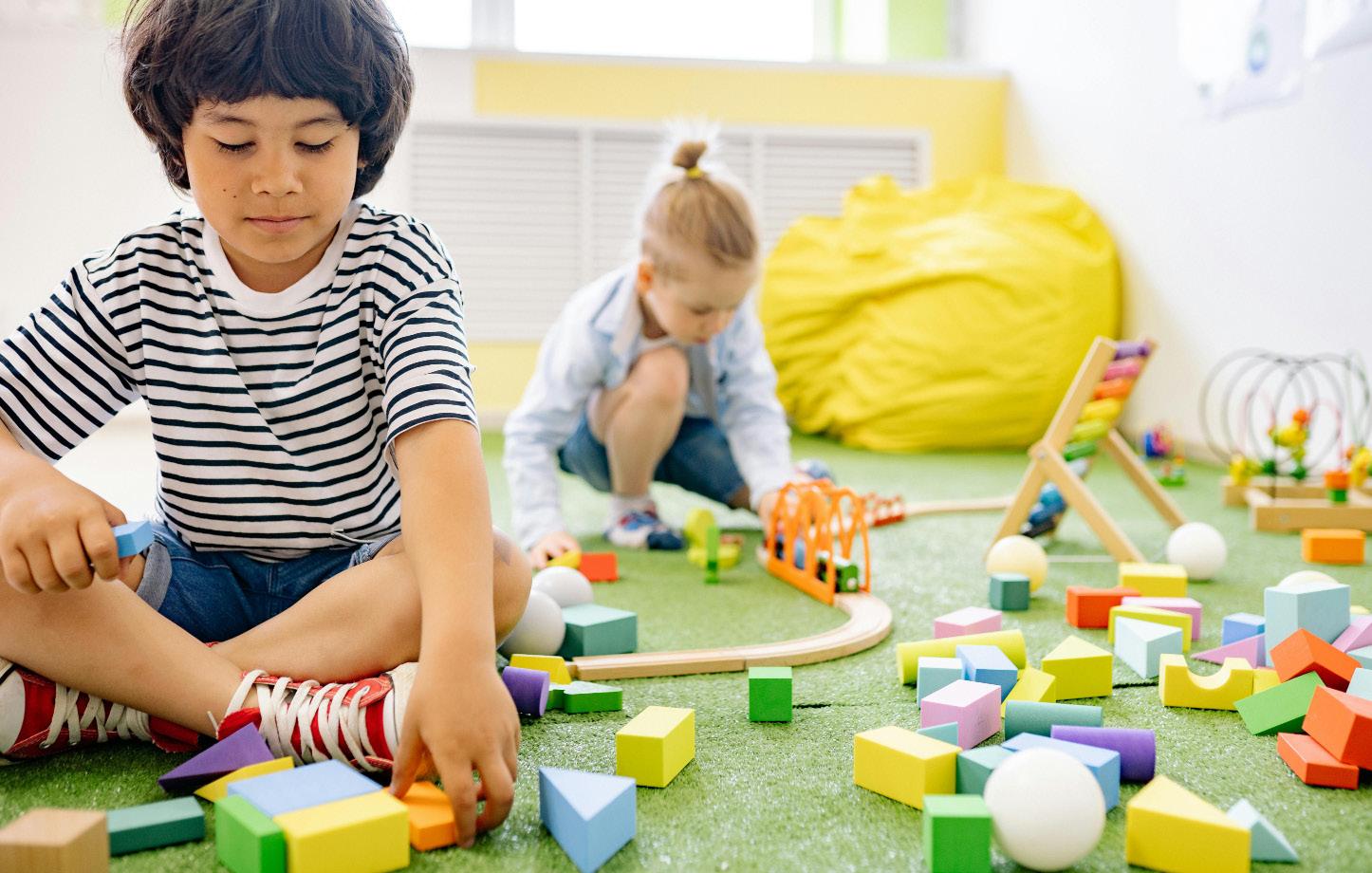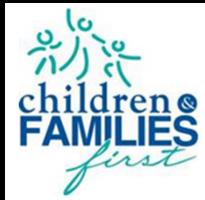WHAT CAN YOU DO?
Remember that parenting, especially adoptive parenting should be first and foremost about maintaining a relationship with your child that continuously reminds them that they belong, that they are
Encourage them when they pursue new interests. Be sure you’re not holding them back based on your own fears or worries.
Be present! Show them that what they say and do is important to you. Avoid generalized praise such as “good job” or “nice work.”
Support their ideas! Help them to reach their goal, and offer praise for their efforts, even if the result wasn’t perfect.
Give opportunities for free play with other children for tolerable time limits. Even if it’s five minutes at a time, congratulate them for having interacted so well.
Talk openly. Have conversations about their adoption story. Read books/watch movies about adoption and talk about how families are different and special.
Model patience. Let your child see when you’re not successful at something and that you’re not afraid to try again.
Give them a voice in decisions. Let them make some decisions, even if they’re not the decisions you would have made.
Be flexible. If your child “acts like a two-year-old,” try using techniques designed to manage two-year-old behavior regardless of how old your child is chronologically.
Relinquish control. If your child is trying to make decisions or complete tasks, let them do so without telling them exactly what or how to do something.
Be an engaged listener. Don’t let your child’s questions upset or annoy you.
An Insider’s Guide
Dear Parents and Caregivers,
We are excited to share with you our new Insider’s Guide to understanding developmental stages in permanency. It was created to provide you with guidance, resources, and quick tips specific to the ages of your children. The realities of caring for any child can change year to year (if not day to day!). This is especially true for children like yours whose stories include separation from their birth parents and a difficult early history. As they grow, new challenges arise. Sometimes, problems surface due to developmental or capacity issues previously unidentified and unanticipated. Other times, troubles are due to new questions your child has about their story. A child’s perspective and understanding of their story changes at different developmental stages. Therefore, we will be sending you this Insider’s Guide each time your child enters a new age range. We hope that this guidance will assist you in navigating the challenges as they arise.
Although every guardianship, permanent guardianship, and adoption journey is different, there is one constant – caregivers need connection and support! We wanted to take this chance to remind you about post-permanency services that are available to you here in Delaware. We encourage you to connect to these services as often as possible, even if no major challenges have arisen just yet. When you’re familiar with the supports and have already built connections, it is easier to reach out when you need to. Staff members at each of the agencies included below, are available whenever issues arise for your family. In addition to individualized support, regularly scheduled trainings and support groups are available. These services are available at no cost to any family that has adopted a child or received guardianship or permanent guardianship of a child.
We firmly believe that all families do better when they are supported and that this is especially true for families that have been uniquely created. Support is just a phone call away! We hope to hear from you because we are here for you.
· Parent Coaching · School Advocacy · Sibling Supports · Rec-n-Respite Program · Adoption Subsidy Assistance · Navigating Birth Family Relationships · Recommendations for Therapeutic Services
Pictured: Mike McHugh, Sandra Korines, Pam Richards, Cora Vasques, Jasmine Johnson, Theresa Broome, Wendy Atanacio, Kim Sabanaygam, Asia Smith, Abby Fischer, Cristina Leach, and Lisa Hutcheson.
Permanency Supports
By Celeste Bishop
Congratulations! You’ve made it through the terrible twos and the toddler years! Your child is now between the ages of three and six years old (or thereabouts.) They are becoming more and more independent and may be taking the initiative to do more things on their own. You may be noticing more situations where they’re trying to assert their power and control over their world, their body, and their play. These attempts at control may be challenging to manage because kids this age tend to make impulsive, risky, or not well thought out decisions. Your child is learning more about how the world works, and they’re discovering that they can have some influence as a result of their choices. Your child may also be taking more notice of differences in people, skin colors, and family compositions, and they’re expressing curiosity about these things. Your child should be able to identify some of their emotions, and some children may be able to manage their emotions when they’re under stress. Because they have a better grasp on emotions, they may also be becoming more adept at showing empathy toward others. As they move through this age range, kids should be able to follow basic social rules, but they’re also continuing to ask themselves, “Do I do this because it feels right to me, or do I do that because it’s the right thing to do?”
Erickson describes this age group as being “Stage Three of Psychosocial Development,” the “Initiative vs Guilt” stage.
During this stage, children are beginning to define their purpose by internally answering questions such as “Am I good or am I bad?” and “Is it okay for me to try to do new things and can I actually do those new things well?”
They initiate many activities or try out new things through curiosity and/or a desire to please the adults in their lives. When their parents respond to their efforts with praise and encouragement, children learn that it’s okay to take risks. They will also learn that even when they’re not always successful, it’s okay to try again and again. When responses from trusted adults are negative or restrictive, children tend to internalize the message that they’re not competent, that they’re not capable, and they begin to develop feelings of guilt regarding their attempts. For example, if your child decides to dress themself, they can feel a strong sense of autonomy and ownership over their physical appearance. But if their efforts are met with criticism or disapproval from you or others, they can be left feeling guilty and humiliated. If your child cleans the bathroom, they’re doing it so they can feel as if they’re able to contribute to the family. If their efforts are critiqued or go unnoticed, they will be left feeling unsure of their abilities and that there’s nothing to gain from trying to make similar contributions in the future. Kiddos this age are still very curious, and they ask a lot of questions as they try to make sense of the world around them. They may also have some “outside the box” thinking as they’re trying to problem solve because they engage in fantasy-like thinking at this age. When we provide affirmative and agreeable responses, our kids begin to learn that their ideas have merit. If we treat our child’s questions as trivial, a nuisance, or embarrassing, they may experience rejection or feel guilty for “being a nuisance.”
For “our” kids – your kids – who have had traumatic in utero or early childhood experiences or who have been separated from their biological family, this stage can be especially difficult to master. Their previous developmental stages may have been delayed or skewed as a result of their experiences. Perhaps your child doesn’t trust their own sense of judgement. Maybe they have pervasive feelings of hopelessness, self-doubt, and confusion. If so, their capacity to believe in themselves enough to take initiative is very compromised. If their early childhood experiences were abusive or neglectful, your child

may be afraid to make decisions or take initiative because their brains continue to be in constant fear of punishment. This avoidance may be mistakenly interpreted by parents and others as willful, which could result in your child being labeled as lazy or unwilling to do what is asked of them. These labels are dangerous! Once applied, they tend to stick, making it challenging for kids to shake them, leading them to believe that they are bound to fail, so why try?
Similarly, if your child’s in utero and/or early childhood experiences were negative, disrupted, or traumatic, they may be experiencing delays in their emotional development. Your kiddo may still be struggling to identify and appropriately express and manage their emotions, and they may still be responding to others aggressively through hitting, biting, etc. Maybe they sometimes revert to baby talk, or they may sometimes be overly clingy, looking for more connection and reassurance from you than some of your other children. They may show signs of moodiness and irritability. Maybe they continue to display temper tantrum-like reactions and a continued obsession about what’s “fair,” even though they “should” be way past that according to their chronological age. You may even continue to experience difficulties surrounding toileting issues, feeding, and sleeping with your kiddo throughout these years.
These are all behaviors that are difficult for parents to tolerate, especially if you have more than one child. You may frequently say to yourself, “They’re 5 years old, shouldn’t they be able to do this at this age?” or, “They’ve been a part of our family for X number of years, shouldn’t they know this by now?” If we hold expectations for our kids based on their age or how long they’ve lived with us, we run
the risk of expecting much more from our kids than they’re capable of based on their delayed or compromised development. If your child feels more guilt than initiative at this stage, they may learn to resist trying new things for fear of failing.
It might be helpful to remind yourselves about your kiddo’s early experiences. Then, consider whether or not they were able to learn trust (Erikson’s Stage 1) and gain a sense of autonomy (Erikson’s Stage 2). If not, if they had in-utero or early experiences that may have impacted their development, you may want to consider re-doing those stages with them before expecting them to master Stage 3. If you are able to help them see the world and the big people as trustworthy, and if you are able to help them gain power and control over their body and some activities, then you can move on to help them begin to take the initiative with their newfound view of their abilities.
And we can’t forget about the impact of prenatal exposure on a child’s brain and development. If your child was prenatally exposed to alcohol or other drugs, or if their birth mother experienced high levels of stress during the pregnancy, your child’s brain is wired differently than others. That means that they may not be capable of doing the things other children their age can do, or as we like to say, “their brain just can’t!” They also may have issues related to sensory processing, emotional regulation, and social interactions as a result of the chemicals that their brain over or under produces.
Our kids are very curious! They’ll ask deeper questions about how they were born, about why their skin color may be different from yours, and/ or about what happened to their first family/biological parents. Even at the tender age of three, you’ll want to give your child information about their story and about their journey to you. You don’t need to give them all of the details, you just want to lay a simple foundation. Even though your child is young, they can handle information when it’s provided in developmentally appropriate language. A simple response such as “You came to our family because your birth parents weren’t ready to be parents when you were a baby. They didn’t know how to do all of the things that parents have to know and do to keep kids safe. A judge and the social workers knew how wonderful and special you are, and they decided that we could give you all of the things you need to be safe and to grow up.” By having these kinds of conversations with your young children, you’re also telling them that talking with you about their story is not only okay but is welcomed by you anytime they want to talk.


← Scan the QR code for a list of books and movies that you can add to your home library!
DID YOU KNOW?
Parent Child Interaction Therapy - also known as PCIT - is an evidence-based treatment program designed for caregivers and their young children (2 to 7 years old) who are experiencing social, behavioral, and/or emotional difficulties. PCIT is regarded by national expert panels as a gold standard treatment for children who have any of the following challenges at school, preschool, daycare, and/or at home:
• Frequent temper tantrums
• Defiance - refusing to follow directions
• Verbal and/or physical aggression
• Destruction of toys and/or family belongings
• Constantly seeking attention
• Hyperactivity
← Scan the QR code to learn more!
Is your adoption/permanency subsidy up for renewal? Have you received your paperwork? Have questions? Have you moved? Do you need to make other changes?
Contact Laurie Lattomus: Phone: (302) 345-1212 Email: llattomus@abcfoc.org
Find this content helpful? QR codes not work for you? Want to subscribe to our e-newsletter? Email us: cbishop@abcfoc.org.
As we all know, parenting in general is a tough job. We don’t know how much we need support until we need support. ABCFOC has been a crucial part of our support team through the Rec-n-Respite program. Rec-n-Respite allows us the opportunity to take a much-needed break while the kiddos benefit from spending quality time with others just like them. The team is supportive, reliable and the kids love to attend. I can’t say enough about the Rec-n-Respite program. As they say, “Kid tested and parent approved.”
- Sheri and Nancy Bailey, parents of four
















